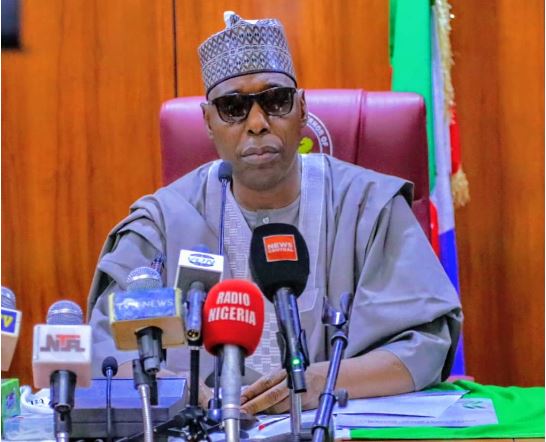Paragraph 1: Alarming Allegations of Collaboration and Sabotage
Borno State Governor, Babagana Zulum, has leveled serious accusations against individuals within the Nigerian political and military spheres, alleging their complicity in aiding and abetting Boko Haram insurgents. In a candid interview, Governor Zulum expressed his conviction that informants and collaborators are deeply embedded within the Nigerian armed forces, political circles, and even within the communities affected by the insurgency. This revelation underscores the complex and insidious nature of the conflict, highlighting the challenges faced in combating an enemy that may be receiving support from within the very institutions tasked with its eradication.
Paragraph 2: Strengthening Intelligence and Combating Saboteurs
Governor Zulum vowed to address this critical issue by strengthening the state’s intelligence network and adopting a "ruthless" approach to dealing with saboteurs. He emphasized the need to dismantle the system of "contractocracy," which presumably refers to corrupt practices and self-serving interests that may be fueling the conflict. The governor’s commitment to a swift and decisive response reflects the urgency of the situation and the need to eliminate internal threats that undermine counterinsurgency efforts. He believes that with decisive action, the insurgency could be significantly curtailed within a six-month timeframe, provided that the issue is not politicized.
Paragraph 3: The Complexities of Repentant Insurgents
Addressing the sensitive topic of surrendered Boko Haram fighters, Governor Zulum acknowledged the inherent complexities of reintegrating former insurgents into society. While expressing confidence in the sincerity of the vast majority of those who have surrendered, he stopped short of claiming that all repentant fighters have genuinely reformed. His estimation is that over 99% of those who surrendered are no longer actively participating in terrorism, contributing positively to the peace-building process instead. This cautious optimism reflects the delicate balance between offering a path to redemption for former combatants and ensuring the safety and security of the community.
Paragraph 4: The Necessity of a Multi-Faceted Approach
Governor Zulum underscored the critical importance of adopting a comprehensive strategy that combines both kinetic (military) and non-kinetic (social, political, and economic) measures to effectively combat the insurgency. He argued that relying solely on military force will never achieve a lasting solution, emphasizing the need to address the underlying social, political, and economic conditions that contribute to the conflict. He praised the combined efforts of kinetic and non-kinetic measures, which he credits with yielding positive results thus far. His assertion that "insurgency will never be ended by kinetic measures alone" highlights the need for a holistic approach that tackles the root causes of the conflict, while simultaneously addressing the immediate security challenges.
Paragraph 5: Challenges and Concerns in the Fight Against Insurgency
Despite expressing optimism about the reintegration of repentant insurgents, Governor Zulum acknowledged the possibility of some individuals returning to their former ways. He also voiced concerns about the military’s lack of adequate equipment, suggesting that insurgents possess a technological advantage. This disparity in resources poses a significant challenge to the military’s efforts to effectively combat the insurgency. Even though he criticised the insufficient resources, the governor was still quick to commend the Nigerian military for their continued support of peace-building efforts. This highlights the importance of acknowledging both the successes and challenges faced by the military in the ongoing fight.
Paragraph 6: A Call for Strategic Leadership and Ground-Level Intelligence
Governor Zulum’s appeal to President Bola Tinubu to prioritize ground-level intelligence and heed professional advice from the military personnel directly involved in the fight against Boko Haram underscores the importance of informed decision-making. His urging to avoid politicizing the issue of insecurity speaks volumes about the need for a united front and a pragmatic approach based on sound information and expert guidance. He specifically referenced the need for a "forest guard," a specialized unit trained for operations in forested areas, as an example of the tailored strategies required to combat the insurgents effectively. By emphasizing the need to listen to those “who can differentiate their left from their right," he implies the existence of misinformation or politically motivated narratives that might hinder effective counterinsurgency efforts. His call for President Tinubu to "listen to the army" demonstrates that firsthand experience and professional expertise are essential for developing and implementing successful strategies in the fight against Boko Haram.














